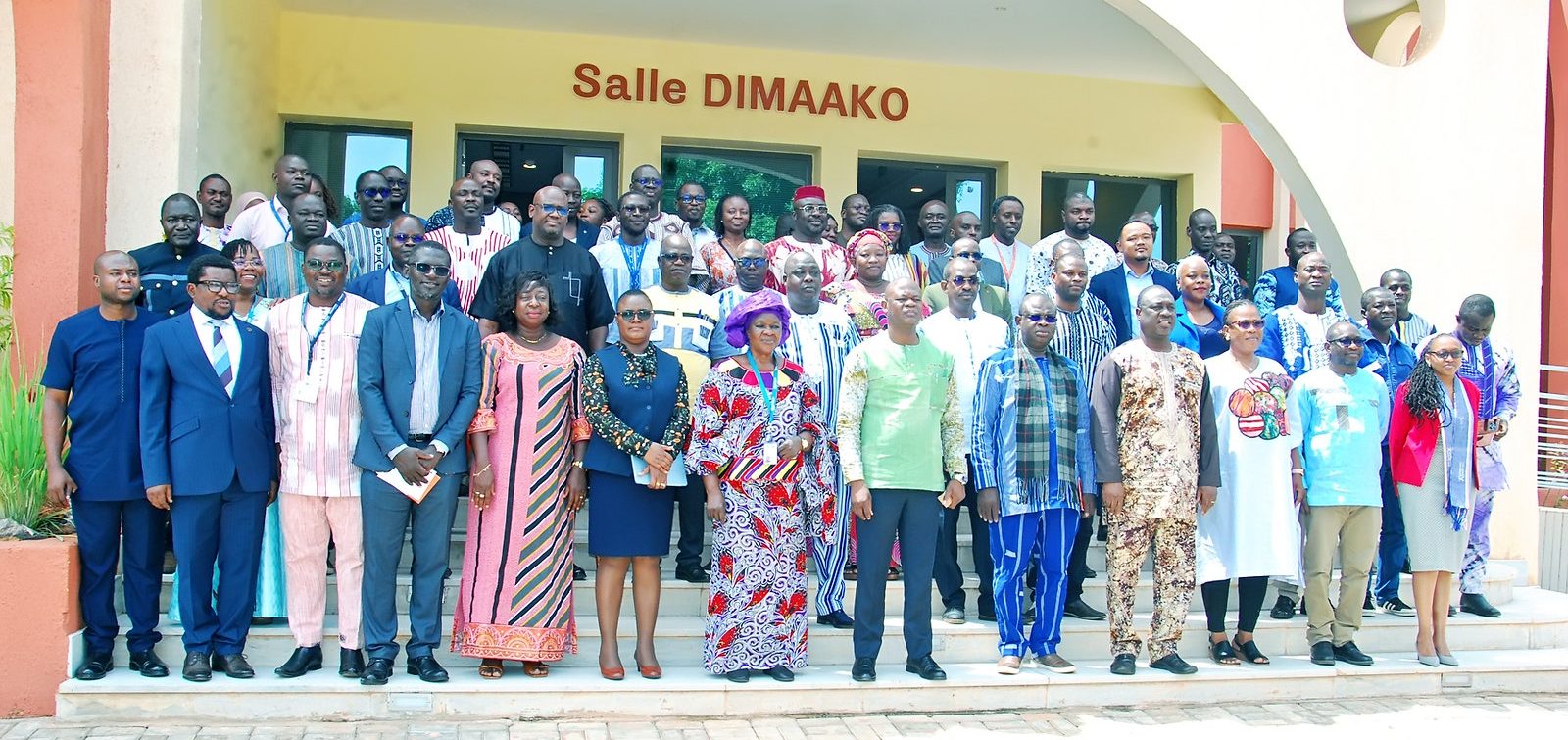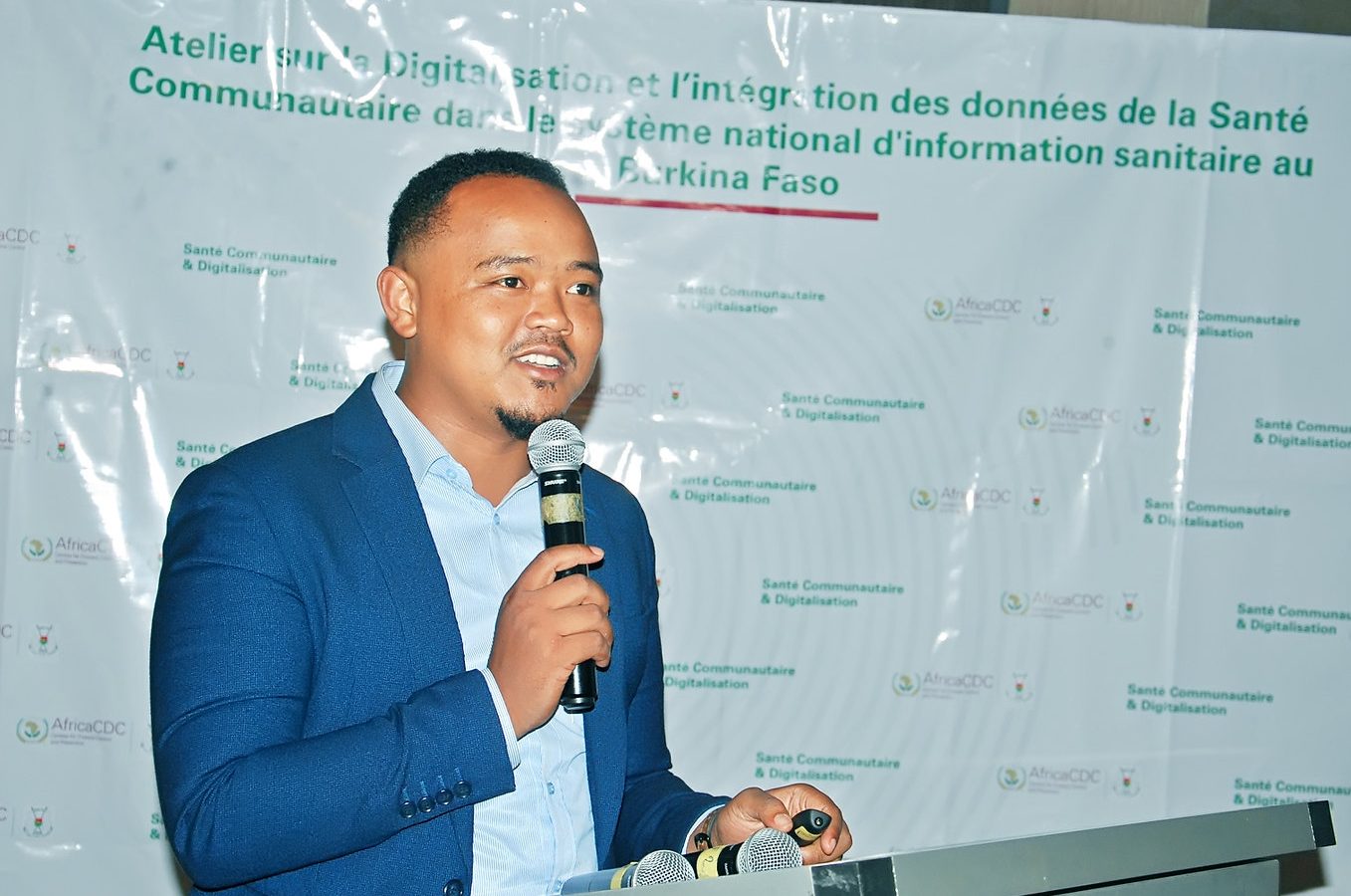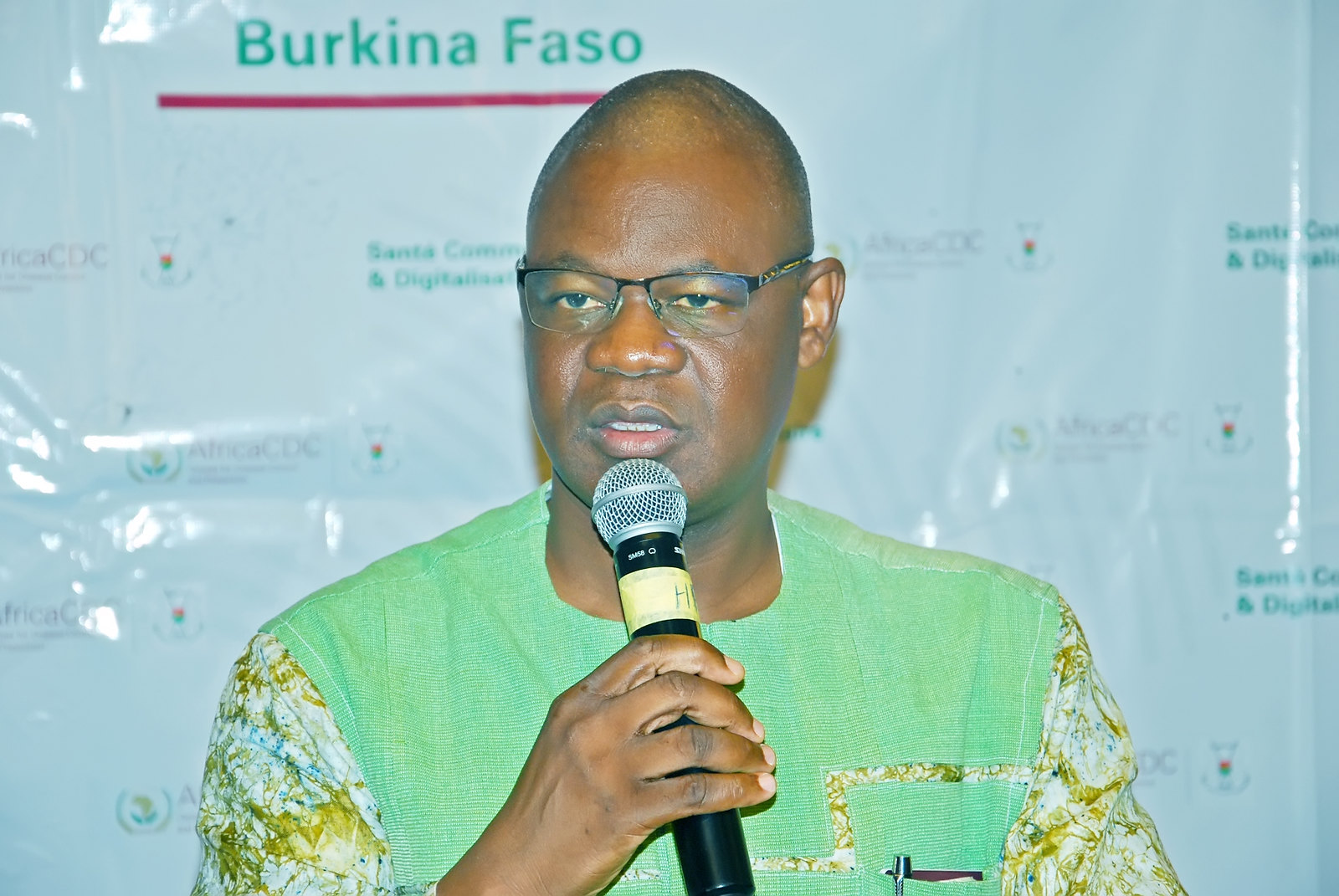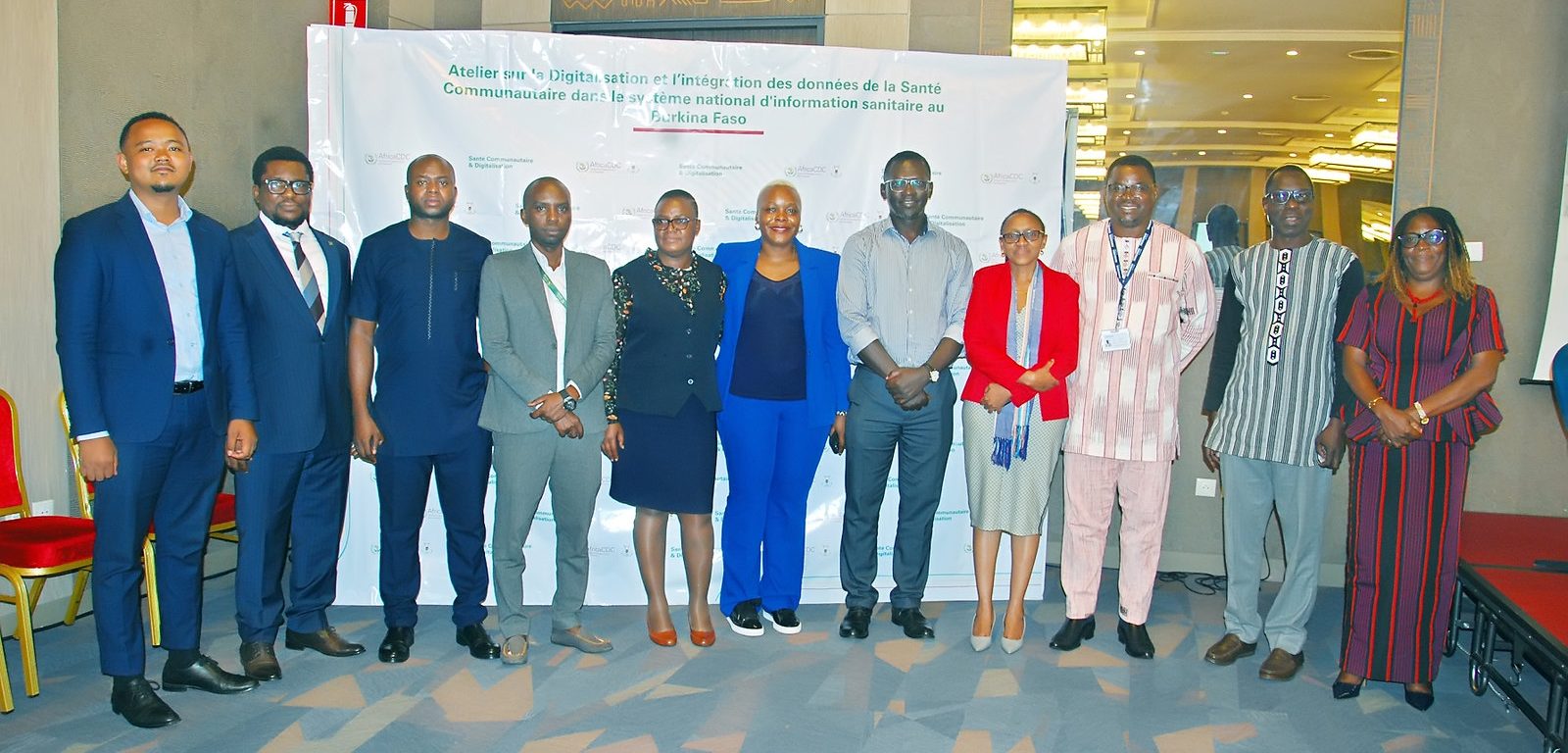Posted on: September 30, 2025
Burkina Faso has taken a decisive step forward towards strengthening its health system through digitization. From September 8 to 12, 2025, the Ministry of Health convened a high-level workshop in Ouagadougou on the digitization of community health and the integration of data into the national health information system. Over five days, a national roadmap for community health digitization was co-created in partnership with Africa CDC, Africa Frontline First, Living Goods, UNICEF, and other partners.

Community Health Workers (CHWs)—known locally as ASBCs—are the backbone of health service delivery in Burkina Faso. With presence across all 17 regions of the country, they provide essential health services and health education at the community level, bridging the gap between families and the formal health system. Yet, most continue to work with paper-based tools, leading to delays in essential care, data loss, and limited accountability.
As the country scales up its community health system, digitization is emerging as a critical solution. Digitization equips CHWs with digital tools to improve care for families, capture accurate data, enhance links with the broader health system, and support better decision-making and overall efficiency. It is the most cost-effective way to enhance data quality and service delivery, accelerate the detection of epidemics, and maximize the impact of scarce resources.
During the workshop, government officials, technical and financial partners, civil society, and CHWs engaged in peer learning. Representatives from Ethiopia, Kenya, and Uganda shared both successes and challenges to shape a roadmap tailored to Burkina Faso’s unique health system.
Mohamadi TASSEMBEDO, Director of Community Health at the Ministry of Health, emphasized the value of this collaborative approach:
“The workshop brought all stakeholders together around a common vision and helped achieve consensus on priorities. Among the successes, we can highlight the validation of the roadmap, the strong commitment of all stakeholders, and the clear identification of each actor’s role.”
This workshop builds on the objectives of Project BIRCH (Building Integrated Readiness for Community Health), funded by the Global Fund and implemented by Living Goods in collaboration with the Ministry of Health, with technical support from Africa Frontline First. It demonstrates the commitment by stakeholders and the government to address the lack of integration of data collected by CHWs into the national health information system, which was revealed by a maturity assessment.

Living Goods brings over 17 years of experience designing and implementing digital health solutions to strengthen community health systems across multiple countries.
Richard Kintu, representing Africa Frontline First, explained:
“The roadmap directly addresses this challenge by prioritizing the integration of CHW data into the District Health Information Software and National Health Management Information System —known as ENDOS in Burkina Faso. It sets out four key areas: strengthening governance and coordination, developing CHWs’ digital skills, improving infrastructure and interoperability, and establishing sustainable financing.”
Beyond the roadmap itself, participants revised monitoring and reporting tools, designed training plans, and developed online learning modules. Africa Frontline First and Living Goods will now support the Ministry of Health in embedding digitization at the core of the 2024–2028 National Community Health Strategy.

One of the workshop’s highlights was the active participation of CHWs themselves, a reminder of the importance of ensuring that decisions about CHWs include their voices. Ouedraogo P. Raphaël, a CHW, shared his perspective:
“This roadmap truly addresses our concerns. They spoke about the training that will be organized for us, and we believe it will help strengthen our skills and better support us in our work,” he said, adding: “Today, after participating in this workshop, I am convinced that real changes are on the way.”
Beyond training, CHWs also expressed hope that this process would lead to greater motivation and recognition of their vital role.
BIRCH: Driving Alignment and Sustainability
Burkina Faso’s progress comes at a crucial moment. BIRCH has played a catalytic role in this planning process, providing additional funding from the Global Fund for national community health priorities and ensuring political commitments are translated into concrete action plans. By supporting governments to align around a single plan, a single budget, and a unified monitoring and evaluation framework, BIRCH helps prevent fragmentation and fosters the sustainability of digital investments.

Ultimately, these efforts are vital because they empower CHWs to deliver faster, more accurate, and more accountable care, ensuring that families receive life-saving treatment at the right time and place.
Next Steps
Key recommendations emerging from the workshop include:
- Finalize the national roadmap for community health digitalization with detailed planning and budgeting
- Validate the roadmap during a Community Health Task Force session
- Officially present the roadmap to all technical and financial partners
- Mobilize resources to ensure effective implementation
Digitizing community health in Burkina Faso is not an end in itself. It is a lever to improve care quality, strengthen accountability, and equip CHWs to work more effectively.
But realizing this will require strong partnerships and sustained investments. A digital health system is not just about tools; it also demands training, reliable connectivity, and political commitment.
The opportunity is clear: by investing in digital health today, partners can support Burkina Faso in building a health system that is more resilient, efficient, and accountable.
